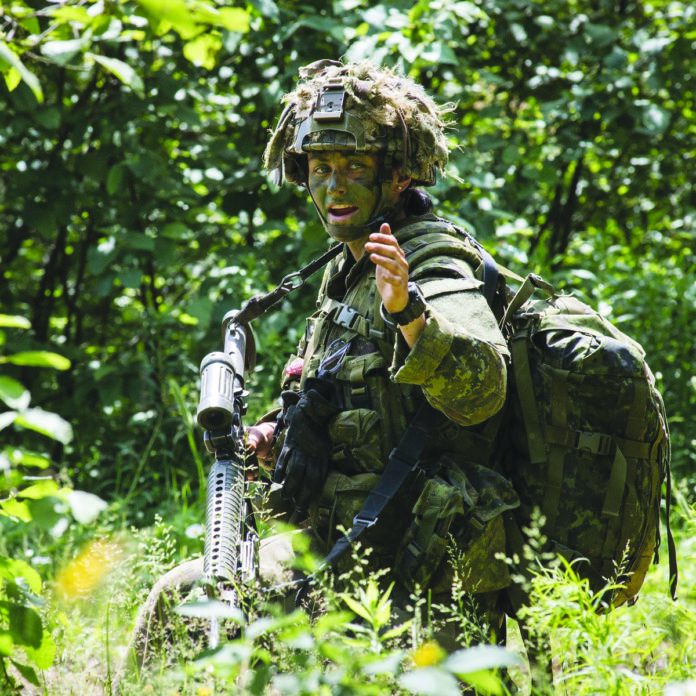Ottawa’s security partnership with Manila could serve as a foundation for Canada’s strategic plan in the Indo-Pacific region.
Geopolitical analyst Don McLain Gill made this case in an article for the Vancouver-based think tank Asia Pacific Foundation of Canada (APF Canada).
Gill is of Filipino heritage and works as a lecturer at the department of international studies of the De La Salle University in the Philippines.
“When Canada launched its Indo-Pacific Strategy in November 2022, it aimed to bolster its diplomatic presence and contribute to the region’s security, sustainability, and growth by co-operating with like-minded partners,” Gill wrote.
“One of the strategy’s undeniable successes is the exponential growth of Canada’s security partnership with the Philippines. It is vital for the newly elected government in Ottawa to invest more in this relationship to better position it as a fulcrum for Canada’s Indo-Pacific vision.”
APF Canada sought opinions from experts like Gill following the recent federal election, which saw the Liberal Party winning a fourth mandate.
In an introductory note to the articles published on April 30, 2025, Vina Nadjibulla, vice-president for research and strategy with APF Canada, noted that with the election over, Canada “stands at a pivotal juncture for its Indo-Pacific Strategy (IPS)”.
Nadjibulla noted that the strategy has “sought to broaden Canada’s diplomatic footprint, diversify trade ties, and bolster security co-operation across the region”.
“The incoming government’s pledge to review Canada’s foreign policy offers a timely opportunity to take stock of which elements of the strategy have worked — and what needs recalibration — in light of today’s volatile global environment,” the APF Canada executive wrote.
Nadjibulla stated that while the U.S. remains the country’s “most important partner by geography and treaty, Canada cannot afford strategic drift”.
“Engagement with Japan, South Korea, Taiwan, the Philippines, and the Association of Southeast Asian Nations (ASEAN) has never been more relevant,” Nadjibulla stressed.
Gill noted that the Philippines and Canada have strengthened defense ties in recent years.
The Filipino analyst cited, among others, joint naval sails in the South China Sea, a volatile area in the region contested by six countries, including the Philippines and China.
On March 8, 2025, Global Affairs Canada announced that Canada’s Department of National Defence and the Philippines’ Department of National Defense have concluded negotiations for a Status of Visiting Forces Agreement (SOVFA).
“This Agreement will launch a new chapter in the Philippines-Canadian bilateral defence relationship – one that sees us working much more closely as trusted partners. It will bolster defense and military ties between the two countries, enabling the Armed Forces of the Philippines and the Canadian Armed Forces to operate and train together in each other’s territories,” Global Affairs Canada noted.
Also, SOVFA will reinforce the Defence Cooperation Memorandum of Understanding signed in January 2024 by Philippine Defense Secretary Gilbert Teodoro and Canadian Ambassador to the Philippines David Hartman.
On April 30 this year, Teodoro revealed in a media conference that SOVFA between the Philippines and Canada will be signed “soon”.
Canada was also one of 19 countries that took part as observers in this year’s Balikatan military exercise led by the Philippines and the U.S.
Around 17,000 troops participated in the annual war games, which began on April 21 and ran until May 9, 2025, with Japan and Australia joining the Philippines and the U.S. as the main participants.
Canada was also part of a 14-nation observer delegation that took part in the 2024 Philippines-U.S. Balikatan.
On March 24, 2025, His Majesty’s Canadian Ship (HMCS) Ottawa returned to its home port of Esquimalt, British Columbia after completing a five-month deployment to the Indo-Pacific region.
“As part of Operation HORIZON, HMCS Ottawa and its crew conducted multinational exercises and maneuvers with Japan, the United States, the Republic of Korea, France, Australia, India, Malaysia, Indonesia, the United Kingdom and the Philippines,” noted a statement by National Defence and the Canadian Armed Forces.
The warship also took part in Operation NEON in connection with United Nations Security Council (UNSC) sanctions against North Korea.
“Canada’s routine presence in the Indo-Pacific region demonstrates our commitment to supporting peace, security, and stability in the region,” the statement explained.
By Carlito Pablo



